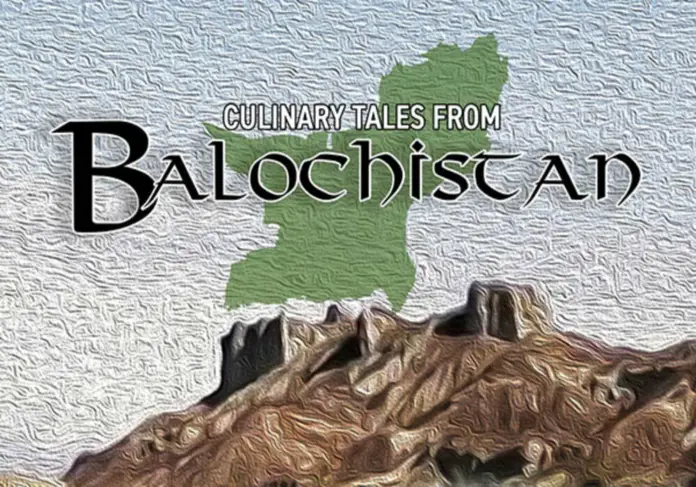Culinary Tales From Balochistan, a book written by Nilofer Afridi Qazi, immerses the reader into the rich cultural heritage of Balochistan and its food traditions. Baloch cuisine is a relatively unexplored topic, and Nilofer’s book provides an essential resource for academicians, food enthusiasts, and travelers alike.
At its core, Culinary Tales From Balochistan is more than a recipe book or a history of Balochostani cuisine. It is a reflection of the author’s childhood memories and personal experience, blended with thorough research, lively storytelling, and vivid images. Throughout the book, Nilofer explores the cuisine and food cultures of those who call Balochistan their home and the distinct flavors, ingredients, and techniques that make Balochostani cuisine unique, representing its multiple cultures, which is a very important point. There is no single culture in Balochistan is not which is beautifully depicted in this book as it portrays different cultural identities, geographic diversity, and nomadic traditions.
The book begins with an introduction to the region, its landscape, climate, and demographics. It explores the significance of communal dining and hospitality in Baloch culture, highlighting the role of food in family celebrations, social events, and religious ceremonies. Nilofer also delves into the historical context of
Balochistan, tracing its influences from Ancient Central Asian, Ancient Persian, Ancient Turkic and Afghan, and how they have evolved to suit local tastes and preferences.
The subsequent chapters of the book explore the various food categories in detail, from appetizers to desserts. Each chapter features a series of traditional Baloch recipes, accompanied by mouth-watering photographs and an explanation of the preparation process. Nilofer’s food descriptions go beyond the conventional ingredients list, showcasing the cultural significance of each dish and the memories associated with it. For instance, Nilofer describes the Belila, a savory milk pudding made with goat milk, saffron, and honey, as an essential dessert during Eid al-Fitr celebrations. She also explains the symbolism of the Shorba, a lamb stew with onion, garlic, turmeric, and cumin, served to honor guests and welcome visitors.
What sets Culinary Tales From Balochistan apart from other recipe books is its emphasis on storytelling and cultural context. Nilofer’s personal anecdotes, memories, and family stories add a relatable and human dimension to Baloch cuisine. It also provides insight into the roles of women in food preparation and the sustainability of nomadic food practices in the modern age.
As a book reviewer and journalist, I appreciate Nilofer’s efforts in backing up her recipes with cultural and historical references. Her extensive research draws from scholarly articles, books, and interviews with locals, adding a layer of academic rigor to an otherwise informal topic. The citation style is clear, consistent, and detailed, making it easy for readers to follow up on references and learn more about Balochistan’s food traditions.
Her work is primary research. Nilofer did not rely on scholarly works for this publication because she is the first one to document the undocumented in Balochistan for its culinary heritage. And what it means. What it tells us about its people, land and histories.
The purpose of her research Is to preserve our heritage, cultural memories through documenting our invisible culinary traditions. Pakistanis are uninterested today but the future generation might be interested in our ancient traditional cultures all wrapped in our food and recipes. They might not last the test of time but they intend to preserve what has survived orally into a documented account of food stories.
In short, Culinary Tales From Balochistan is a well-researched, engaging, and informative book that illuminates the richness of Baloch cuisine. It is a valuable contribution to the field of food studies, anthropology, and cultural heritage preservation. Whether you are a food enthusiast or an academician, Nilofer’s book is a delightful journey into the flavors, aromas, and memories of Balochistan’s culinary tales.








DID THE BOOK TALK ABOUT THE POVERTY AND ITS ROOTS AND THE REASONS BEHIND, THE RULING ELITES OR THE LORDSHIP GETTING BILLIONS OF FUNDS FOR THE POOR BALUCHISTAN AND THE WAY OUT IF? OR THE BOOK SAY JUST WAIT WHEN THE MIRACLES HAPPEN?